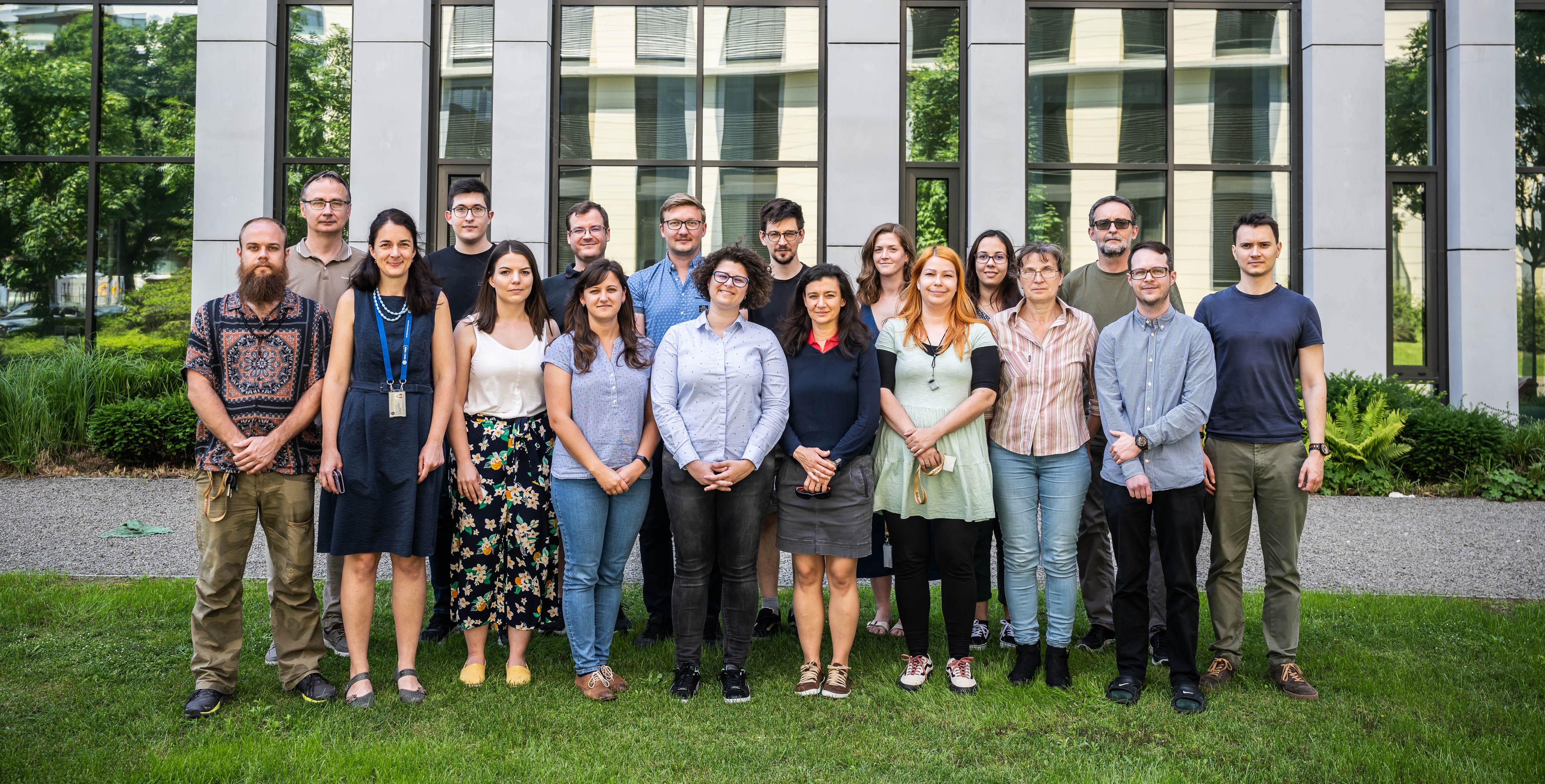
In the Autumn of 2001 the Institute of Archaeology of the Hungarian Academy of Sciences (HAS), in cooperation with the Institute of Genetics in the Biological Research Center of the HAS, launched the project "Historical genetics in the research of the Hungarian ethnogenesis". In the framework of the 5th Program of the National Research and Development Plans, the Institute of Archaeology undertook the establishment of a molecular genetic laboratory that was suited both for the extraction and typing of ancient DNA. The new laboratory was inaugurated on the 19th of November 2003. The laboratory has been researching the ethnogenesis of Hungarians for a decade, under this investigation, the lab has been reconstructed and renewed several times. From 2015 onwards, the working group deals with next-generation DNA sequencing and analysis of the full mitochondrial and nucleus genome. In 2016, a new lab was designed in a new building, which facilitated infrastructure development and the introduction of state-of-the-art technologies. The workgroup and the research areas have been constantly expanded in recent years, but the focus remained on the genetic research of the populations of the Carpathian Basin and the related populations.
Research tasks
- Using the tools of archaeogenomics, we study the genetic characteristics of archaic human populations of the Carpathian Basin and Eurasia, as a member of an international research network.
- Research of the genetic characteristics of archaic remains of non-human species, especially animals related to humans, based on historical and biodiversity considerations.
- Exploring genetic relationships between populations of different archaeological ages by means of population genetics and phylogenetics.
- Helping archeology and anthropology in answering specific questions (such as kinship, genetic sex, belongings of biological finds, interpretation of multiple burials, phenotypic characteristics).
- Examination of health characteristics of once-lived populations through archaeological human remains, searching for genetic data that affects health, and using archaic microbiological tools to understand evolution and spread of human pathogens.
- Researching the genetic diversity and historical relationships of the minorities, linguistic and ethnographic units of Hungary and the surrounding countries.
- Exploring the genetic characteristics and relationship system of the early history of the Hungarians and the early Hungarians in their ancient settlement territories and in the Carpathian Basin, in co-operation with the traditional co-sciences of Hungarian prehistory.
- Participating in the comparative analysis of databases and archaic data obtained from different systems (health, justice, ethnography), and in individual research.
- Authentication of historical persons, families and military burials through genetic examination.
- Participating in forensic anthropological-genetic studies to the extent of the methodologies and expertise used by the institute.
- In addition to adequate quality assurance, participating in the practical training of BSc, MSc and PhD students, ERASMUS, Stipendium Hungaricum and other students with foreign scholarships and in the implementation of their projects.


